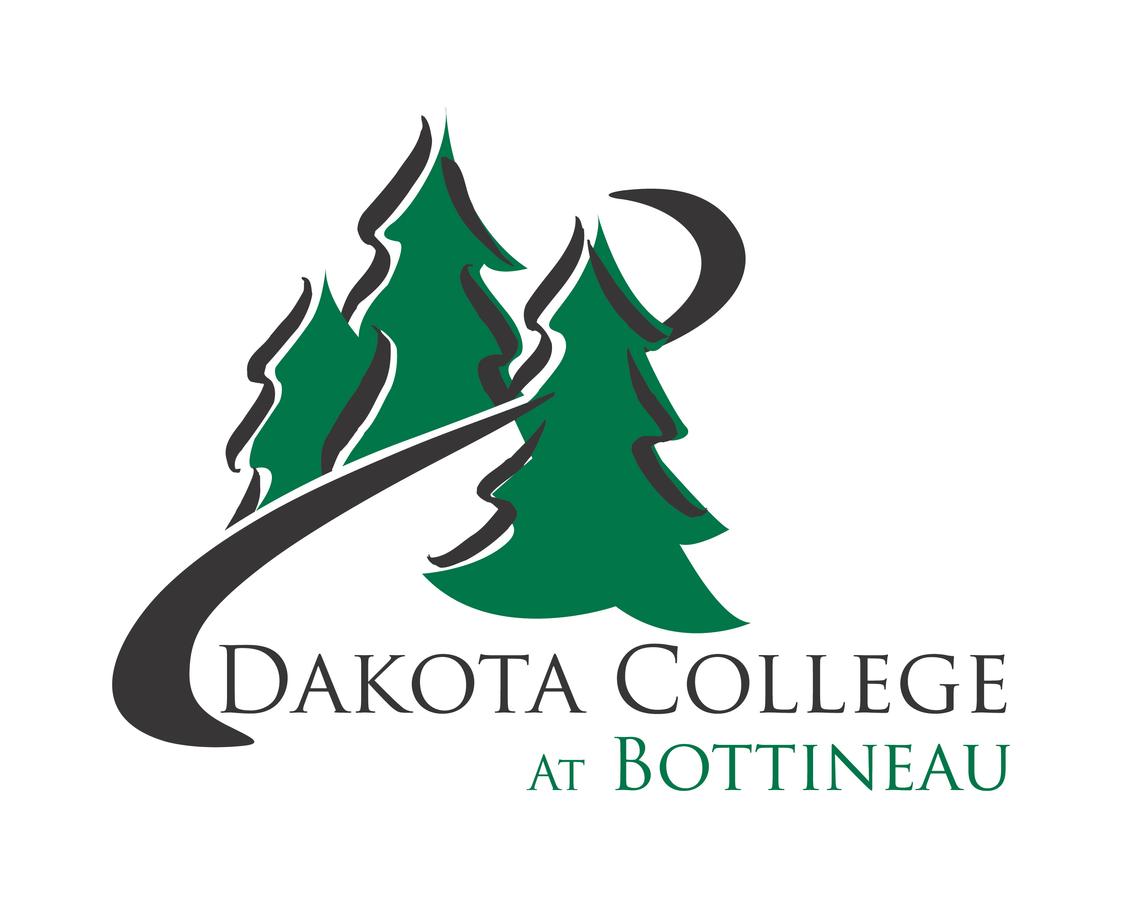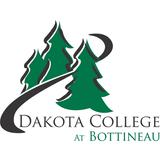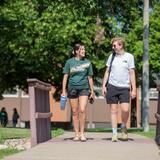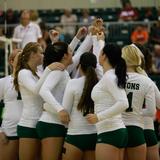- The College achieves its mission by providing specialized technical programs in agriculture, environmental/natural resource studies, and business as well as through traditional curriculum that transfer to baccalaureate programs. The opportunities for experiential learning in attractive outdoor settings allow the unique educational programs on this campus to be intensified. A commitment to "hands-on" learning and the use of natural resource laboratories are common instructional techniques. The proximity of the campus to the International Peace Garden, J. Clark Salyer National Refuge, Denbigh Experimental Forest, the Turtle Mountains, and the offices of the North Dakota Forest Service provides a natural setting to support unique training programs serving all constituents.
School Highlights
Dakota College at Bottineau serves 1,378 students (24% of students are full-time).
The college's student-teacher ratio of 14:1 is same as the state community college average of 14:1.
Minority enrollment is 29% of the student body (majority Hispanic and Black), which is less than the state average of 34%.
Quick Facts (2026)
- Enrollment: 1,378 students
- In-state tuition: $5,046
- Out-state tuition: $7,161
- Acceptance Rate: 70%
- Student-teacher ratio: 14:1
- Minority enrollment: 29%
- Source: Verified school update
Upcoming Events and News
- DCB Celebrates Alumni Recipients - 10/14/2025Since 1982, Dakota College at Bottineau (DCB) Alumni Association has hosted an Awards Recognition banquet that honors supportive community and alumni.
- LeaderJacks Give to the Community - 10/13/2025Dakota College at Bottineau (DCB) offers student leadership opportunities through the LeaderJacks program on the DCB campus.
- DCB Farm Management Education Instructor Hired in Stanley - 10/02/2025Dakota College at Bottineau, through the North Dakota Farm Management Education Program, offers farmers, ranchers, and individuals interested in farming assistance in meeting their business and personal goals.
- DCB Welcomes New Faculty into Healthcare Programs - 09/30/2025Dakota College at Bottineau (DCB) is excited to welcome new faces across its campuses as it continues to grow and expand its healthcare programs.
- Dakota College Announces Fall Enrollment - 09/25/2025Enrollment for Dakota College at Bottineau (DCB) is up this fall, with headcount hitting another all-time high.
School Overview
The teacher population of 99 teachers has stayed relatively flat over five years.
Dakota College at Bottineau
(ND) Community College Avg.
Carnegie Classification
Associate's Colleges: High Career & Technical-High Nontraditional
Baccalaureate/Associate's Colleges: Mixed Baccalaureate/Associate's
Institution Level
Less than 2 yrs
At least 2 but less than 4 years
Institution Control
Public
Public
Total Faculty
99 staff
99 staff
School Calendar
Student Body
The student population of Dakota College at Bottineau has grown by 30% over five years.
The student-teacher ratio of 14:1 has increased from 12:1 over five years.
The Dakota College at Bottineau diversity score of 0.47 is less than the state average of 0.54. The school's diversity has declined by 19% over five years.
Total Enrollment
1,378 students
1,081 students
Student-Teacher Ratio
14:1
14:1
# Full-Time Students
330 students
330 students
# Part-Time Students
1,048 students
751 students
# Enrollment Undergraduate
137 students
248 students
# Full-Time Undergraduate Students
330 students
330 students
# Full-Time Graduate Students
n/a
12 students
# Part-Time Undergraduate Students
1,048 students
751 students
# Part-Time Graduate Students
n/a
10 students
Total Dormitory Capacity
259 students
259 students
% American Indian/Alaskan
3%
1%
% Asian
1%
1%
% Hispanic
5%
4%
% Black
3%
4%
% White
71%
66%
% Hawaiian
5%
4%
% Two or more races
4%
4%
% Non Resident races
5%
2%
% Unknown races
3%
14%
Diversity Score
0.47
0.54
College Completion Rate (Students who graduate in less than 4 years)
33%
45%
College Completion Rate (Students who graduate in 4 years or more than 4 years)
n/a
55%
Average Graduate Earnings (10 Years)
$36,700
$38,300
Tuition and Acceptance Rate
The public in-state tuition of $5,046 is more than the state average of $4,431. The in-state tuition has stayed relatively flat over four years.
The public out-state tuition of $7,161 is more than the state average of $7,084. The out-state tuition has stayed relatively flat over four years.
In-State Tuition Fees
$5,046
$4,431
Out-State Tuition Fees
$7,161
$7,084
Tuition Notes
There are various out-of-state tuition rates based upon residency. Please visit www.dakotacollege.edu to learn more.
% Students Receiving Some Financial Aid
88%
94%
Median Debt for Graduates
$10,754
$10,754
Median Debt for Dropouts
$5,500
$5,500
Acceptance Rate
70%
92%
SAT Reading
n/a
520
SAT Math
n/a
545
SAT Writing
n/a
470
ACT Composite
n/a
19
ACT English
n/a
18
ACT Math
n/a
20
ACT Writing
n/a
7
Sports
Total Sports Offered
5 sports
Sports
BaseballBasketball
Ice HockeySoftball
Volleyball
Extracurriculars
Total ExtracurricularsTotal Extra-curric.
6 extracurriculars
ExtracurricularsExtra-curric.
Club or Organization:
Recreational Athletic Programs:
CRUHonors Program
LeaderjacksPhi Theta Kappa Honor Society
Student Senate
Recreational Athletic Programs:
Intramural Sports
Source: 2024 (or latest year available) Integrated Postsecondary Education Data System (IPEDS) , School Administrators
School Notes
- Dakota College at Bottineau is accredited by the Higher Learning Commission (HLC). The HLC is one of six regional institutional accreditors in the United States. The Higher Learning Commission accredits degree-granting post-secondary educational institutions in the North Central region, which includes North Dakota. DCB has been accredited since 1971. It received a reaffirmation of accreditation in 2009-2010 and is scheduled for its next reaffirmation in 2019-2020.
- Sample of notable school alumni/alumnae:
- Scott Johnson, Mathematics Professor, recognized as Dale P. Parnell Distinguished Faculty by AACC -
Profile last updated: 11/10/2025
Frequently Asked Questions
How much does Dakota College at Bottineau cost?
Dakota College at Bottineau's tuition is approximately $5,046 for In-State students and $7,161 for Out-State students.
What schools are Dakota College at Bottineau often compared to?
Dakota College at Bottineauis often viewed alongside schools like Bismarck State College by visitors of our site.
What is the acceptance rate of Dakota College at Bottineau?
The acceptance rate of Dakota College at Bottineau is 70%, which is lower than the state average of 92%.
Who are famous alumni from Dakota College at Bottineau?
Dakota College at Bottineau famous alumni include: Scott Johnson, Mathematics Professor, recognized as Dale P. Parnell Distinguished Faculty by AACC.
What sports does Dakota College at Bottineau offer?
Dakota College at Bottineau offers 5 interscholastic sports: Baseball, Basketball, Ice Hockey, Softball and Volleyball.
Recent Articles

Community College vs. Bootcamps for Tech Careers in 2026
Community college vs. bootcamps in 2026. Compare cost, outcomes, credentials, and hiring trends to choose the best tech career path.

How to Build a Class Schedule That Fits Your Life (Spring 2026)
Learn how to build a class schedule that fits your life with expert tips, updated strategies for Spring 2026, and practical planning tools for students and families.

Top 10 Jobs for Community College Graduates in 2026
Meta Description: Discover high-demand jobs for community college graduates, with current salary trends, costs, and career pathways.















